Reflections by Petek Şirin on In the Know Sessions & ICAEA Conference
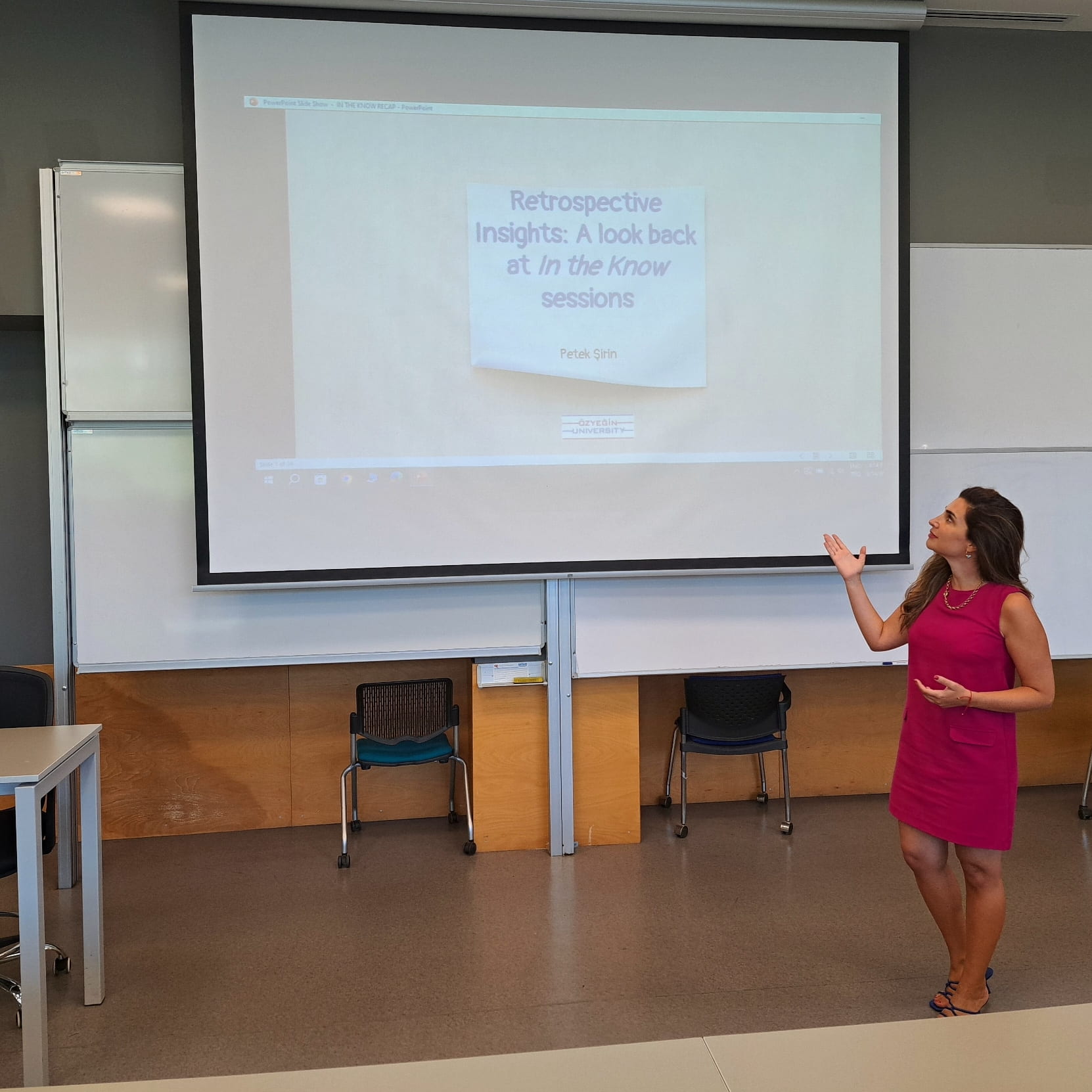
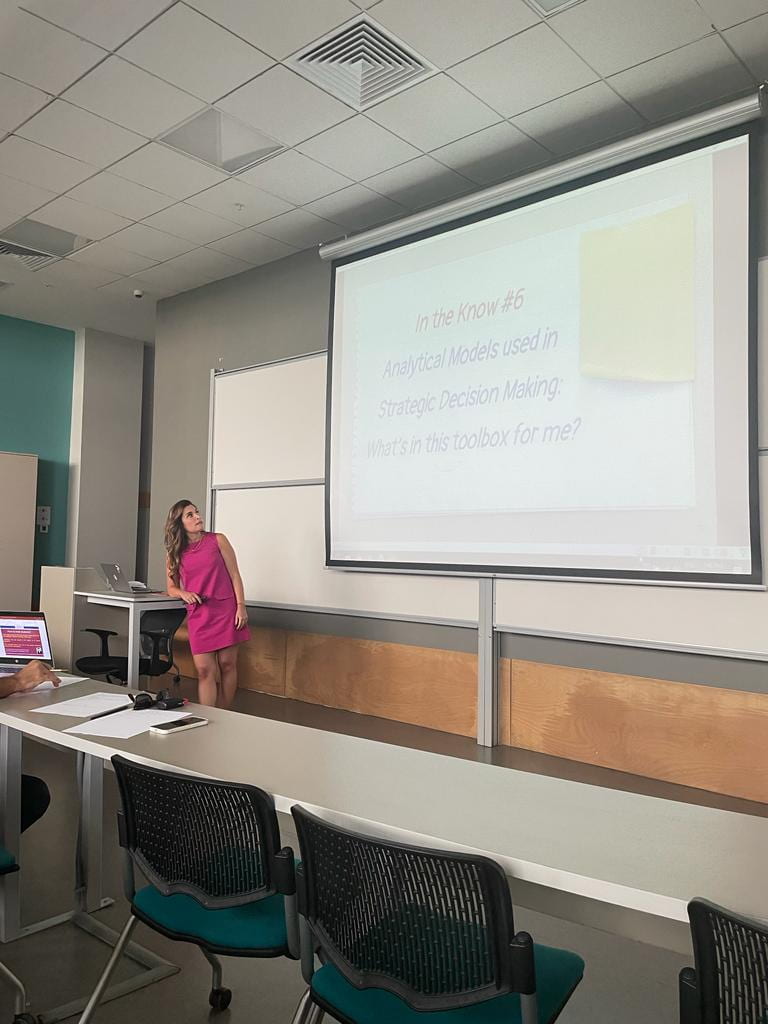 Retrospective Insights: A look back at In the Know Sessions by Petek Şirin
Retrospective Insights: A look back at In the Know Sessions by Petek Şirin
In our reflective ‘In the Know’ session kicking off the new academic year, we embarked on a rich and engaging journey, revisiting a diverse array of thought-provoking themes. First and foremost, we explored the concept of genre-based pedagogy. This topic holds immense significance in the realm of education, as it underscores the importance of tailoring teaching approaches to specific genres of writing. By doing so, educators can better equip students with the skills they need to excel in various contexts, from academic essays to creative pieces. Genre-based pedagogy challenges us to rethink traditional teaching methods and consider how we can best foster creativity and critical thinking in our students. Diverse feedback modes were another area of discussion during our session. Providing feedback is an integral part of the teaching and learning process, and it’s essential to recognize that different students may benefit from different feedback styles. By acknowledging and embracing diverse feedback modes, we can create a more inclusive and effective learning environment. The intricate relationship between reading and writing was also a topic of contemplation. Reading and writing are two sides of the same coin, and understanding the synergy between them is key to developing proficient writers. This interplay between reading and writing not only enhances language skills but also fosters critical thinking and comprehension. Teacher well-being was a subject that resonated deeply with all of us. The demands on educators can be immense, and it’s crucial to prioritize self-care and mental health. Our discussion highlighted the importance of providing support and resources to teachers to ensure they can effectively guide and inspire their students. Analytical tools for strategic decision-making sparked interesting conversations as well. In the rapidly evolving field of education, data-driven decisions are becoming increasingly essential. By using analytical tools, educational institutions can make informed choices that enhance the overall learning experience. The pivotal role of writing centers in academic institutions was another vital topic on our agenda. Writing centers serve as invaluable resources, providing students with guidance, feedback, and a supportive environment for their writing endeavors. Recognizing and promoting the significance of these centers can have a profound impact on students’ writing skills and confidence. Lastly, our discussion ventured into the fascinating social construction of mobile phones within Aviation English courses. This topic sheds light on how technology is integrated into specific educational contexts. Understanding the dynamics of mobile phone usage in this setting can help educators tailor their approaches and harness technology for more effective teaching.
ICAEA CONFERENCE : Current trends and future perspectives in Aviation English training
18 – 20 September, 2023 by Petek Şirin
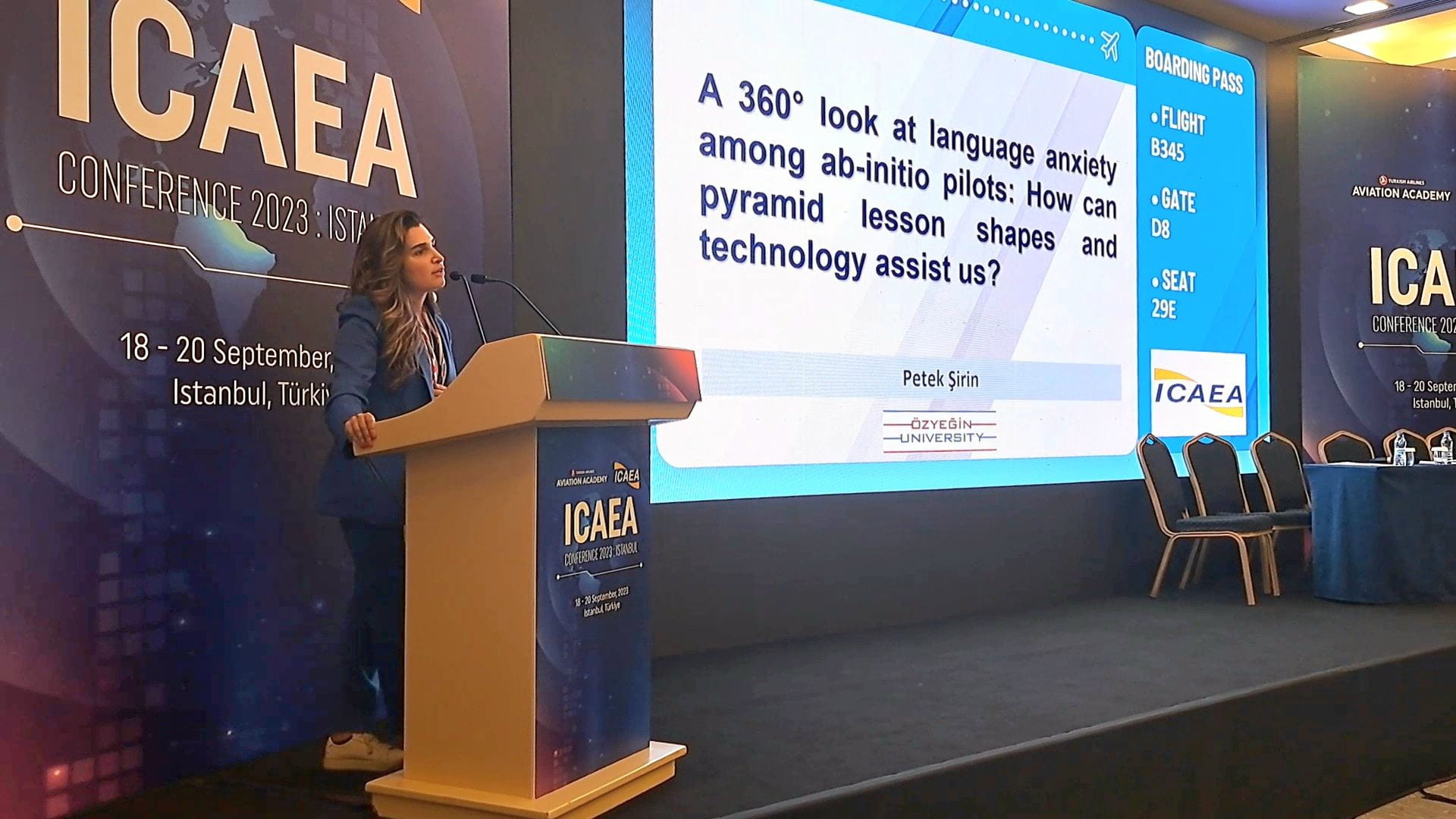 The Istanbul conference was an enriching two-day event that brought together professionals and experts in the field of aviation language education from around the world. Day 1 of the conference was marked by a series of insightful sessions, with a particular focus on course design and needs analysis. Two presentations delved into these crucial aspects, shedding light on how to tailor aviation language courses to the specific needs of learners. Day 1 also featured three engaging workshops that revolved around the development of training materials. These workshops provided attendees with practical tools and strategies to create effective training resources, ensuring that aviation English learners receive the highest quality education.
The Istanbul conference was an enriching two-day event that brought together professionals and experts in the field of aviation language education from around the world. Day 1 of the conference was marked by a series of insightful sessions, with a particular focus on course design and needs analysis. Two presentations delved into these crucial aspects, shedding light on how to tailor aviation language courses to the specific needs of learners. Day 1 also featured three engaging workshops that revolved around the development of training materials. These workshops provided attendees with practical tools and strategies to create effective training resources, ensuring that aviation English learners receive the highest quality education.
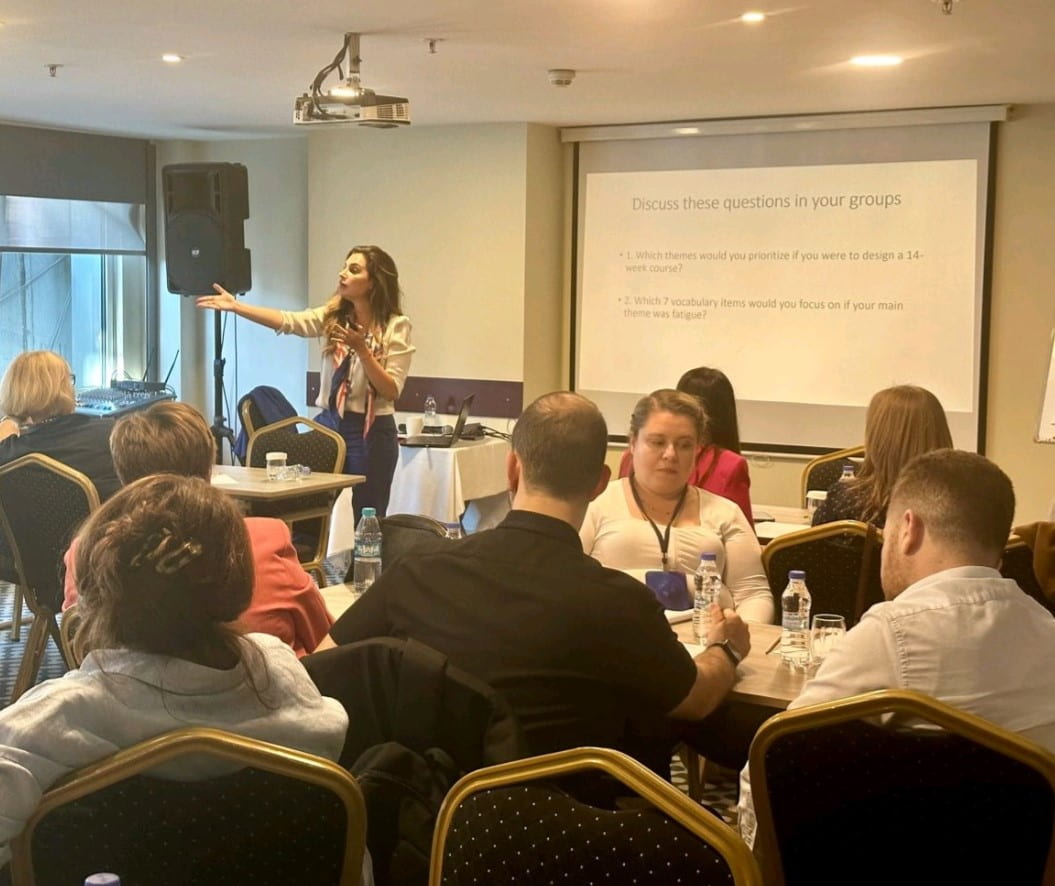 As the conference transitioned into Day 2, the spotlight shifted to the role of technology in Aviation English training. Five presentations explored the ever-evolving landscape of technology, examining both existing and emerging tools and their impact on language instruction. This emphasis on technology highlighted the importance of staying up-to-date with the latest advancements to enhance the learning experience for aviation students. Day 2 also offered three workshops, providing attendees with hands-on experiences and practical insights into integrating technology into their teaching practices. Being one of the presenters and sharing insights in my workshop, “A 360° look at language anxiety among ab-initio pilots: How can pyramid lesson shapes and technology assist us?” was a huge pleasure. During the workshop we explored innovative strategies to improve speaking competence, ignite confidence, and reduce language anxiety in ab-initio pilots.
As the conference transitioned into Day 2, the spotlight shifted to the role of technology in Aviation English training. Five presentations explored the ever-evolving landscape of technology, examining both existing and emerging tools and their impact on language instruction. This emphasis on technology highlighted the importance of staying up-to-date with the latest advancements to enhance the learning experience for aviation students. Day 2 also offered three workshops, providing attendees with hands-on experiences and practical insights into integrating technology into their teaching practices. Being one of the presenters and sharing insights in my workshop, “A 360° look at language anxiety among ab-initio pilots: How can pyramid lesson shapes and technology assist us?” was a huge pleasure. During the workshop we explored innovative strategies to improve speaking competence, ignite confidence, and reduce language anxiety in ab-initio pilots.
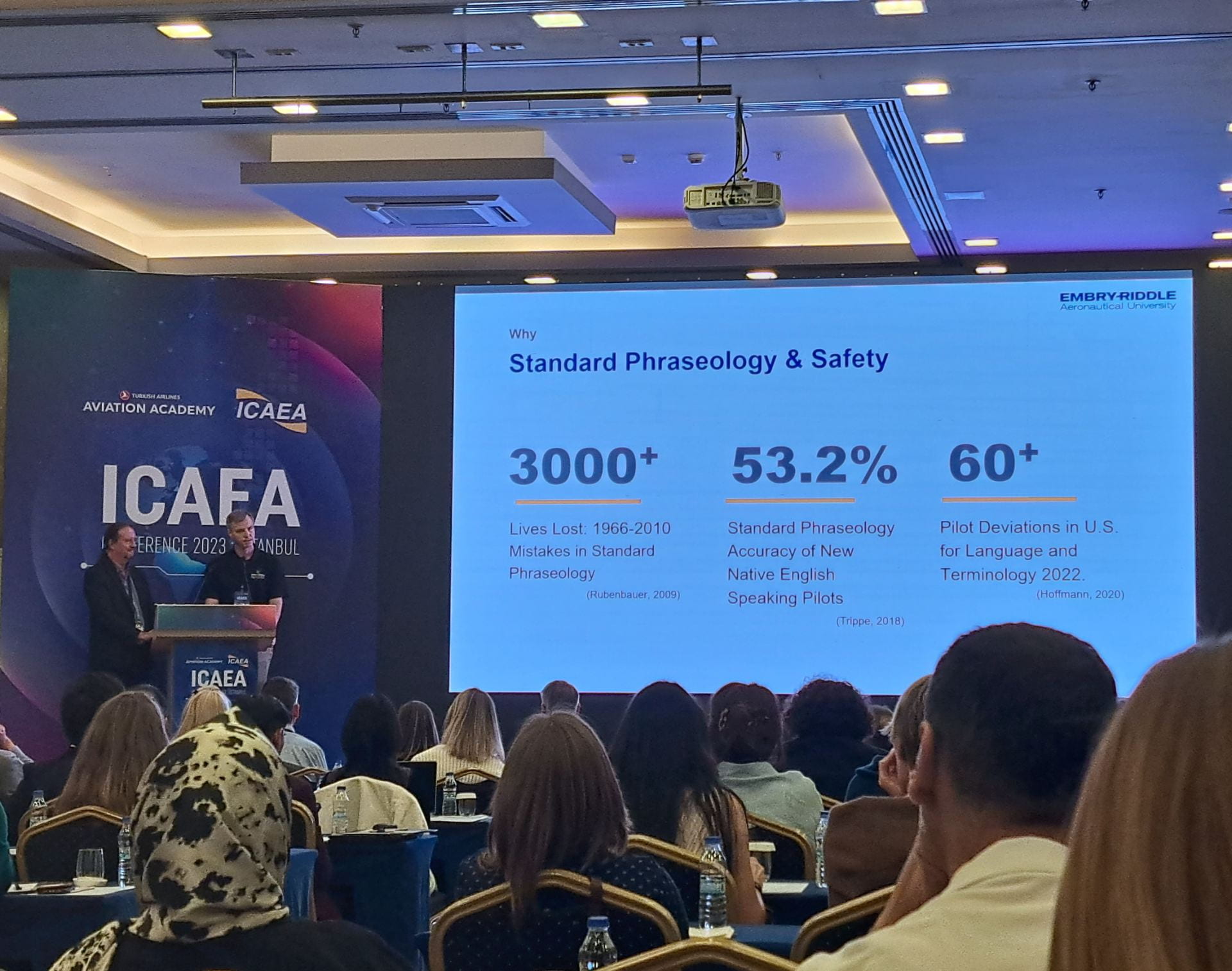 The climax of the conference was a remarkable session featuring five case studies, all presented by exceptionally talented women in the field. These case studies showcased the depth of expertise and dedication within the aviation language education community, inspiring attendees with their innovative approaches and valuable insights.
The climax of the conference was a remarkable session featuring five case studies, all presented by exceptionally talented women in the field. These case studies showcased the depth of expertise and dedication within the aviation language education community, inspiring attendees with their innovative approaches and valuable insights.
A heartfelt appreciation goes out to The International Civil Aviation English Association (ICAEA) and the Turkish Airlines Aviation Academy team for their exceptional efforts in organizing and hosting this phenomenal event. Their dedication to advancing aviation language education and fostering a collaborative and innovative community was evident throughout the conference.

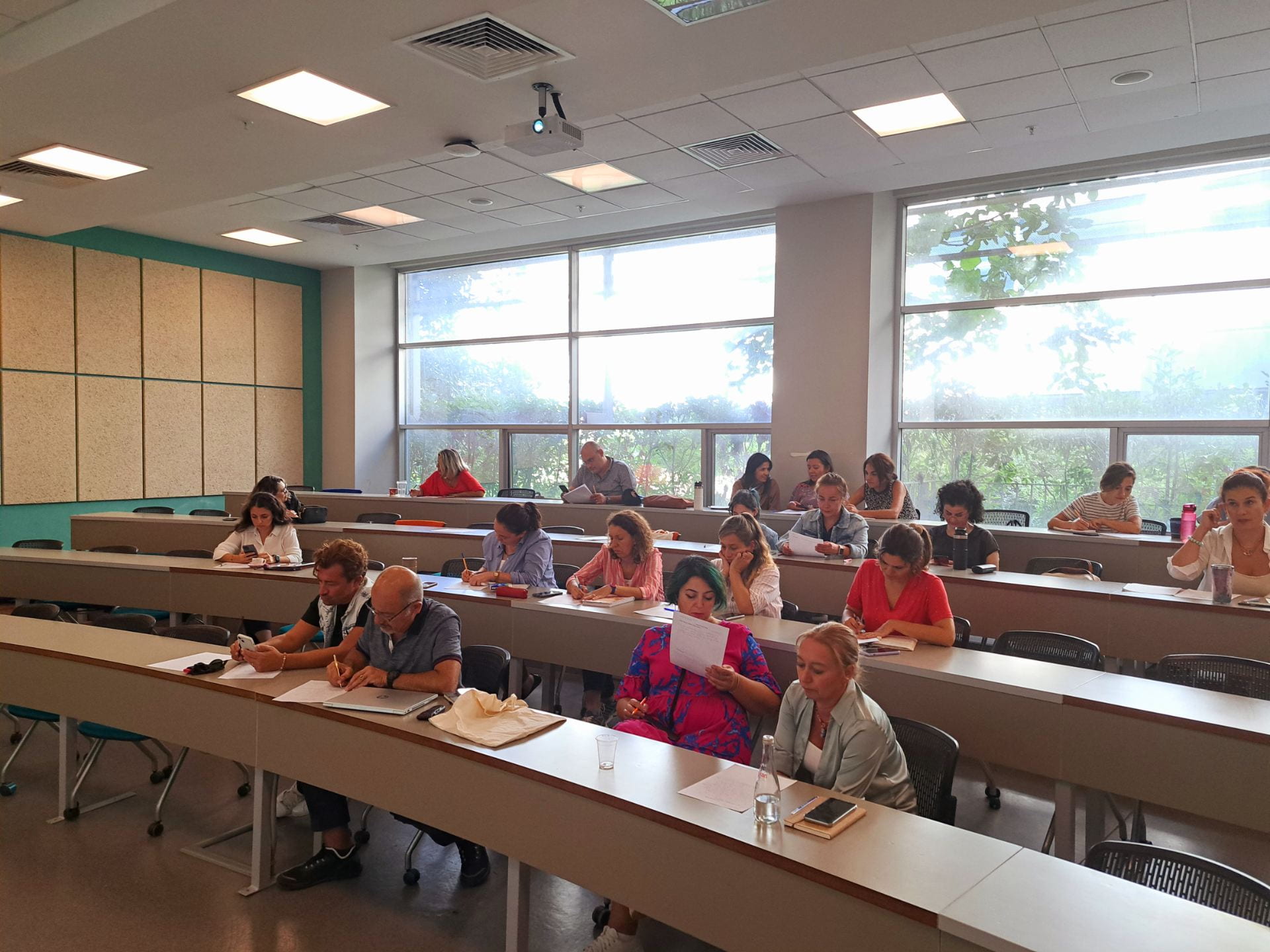
Thank you very much for the information provided! I was looking for this data for a long time,
but I was not able to find the trusted source.
Managed Cloud Hosting Company in Dubai